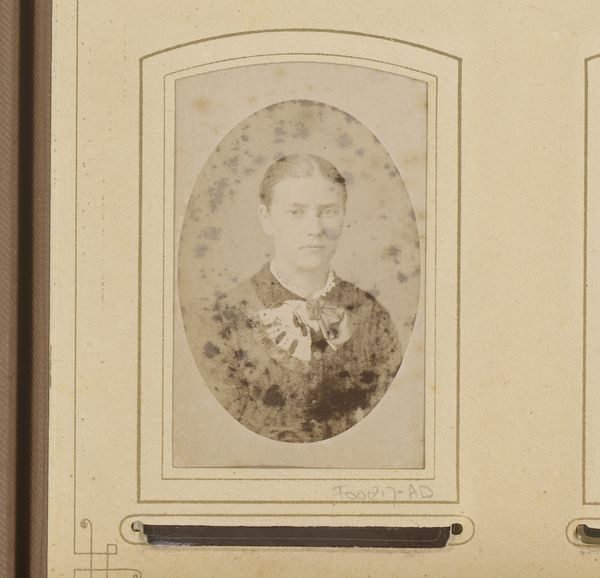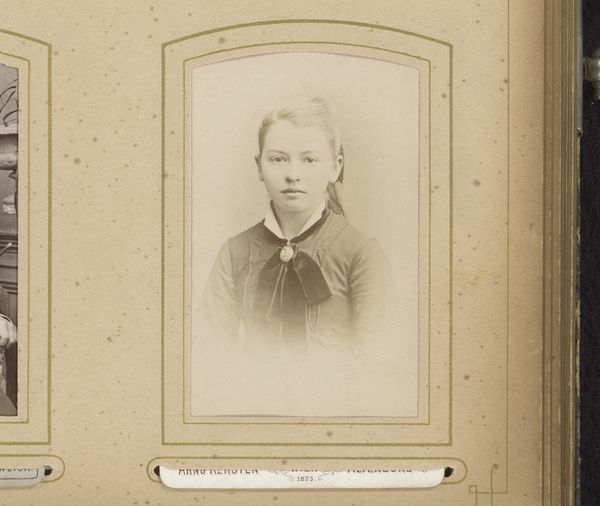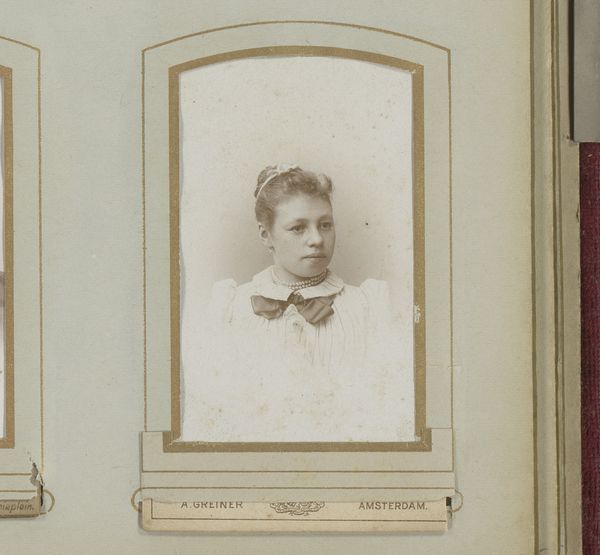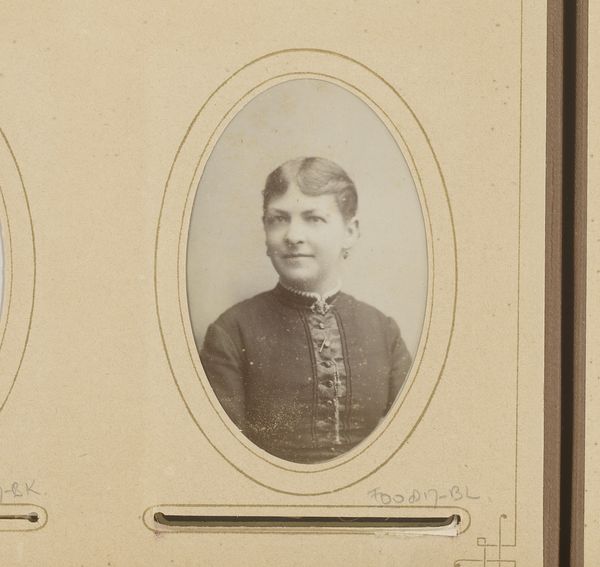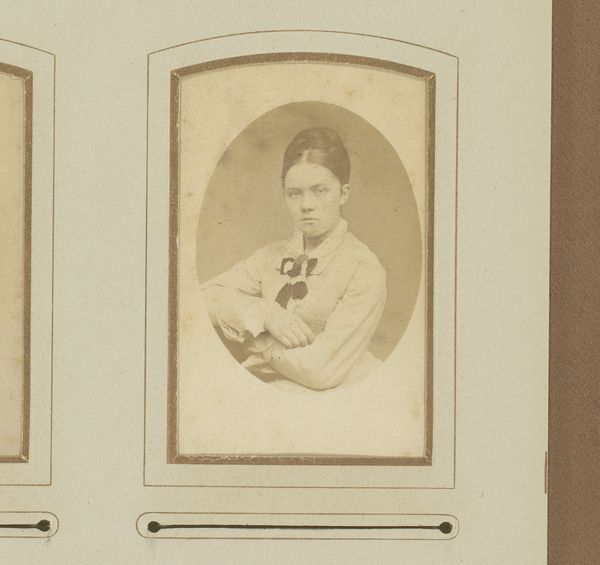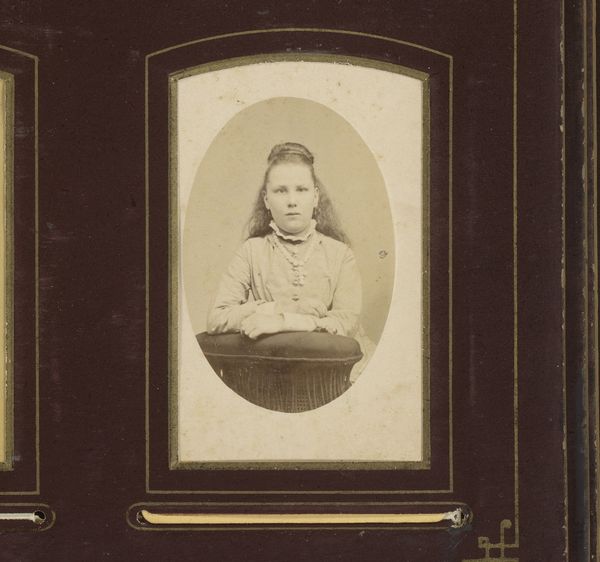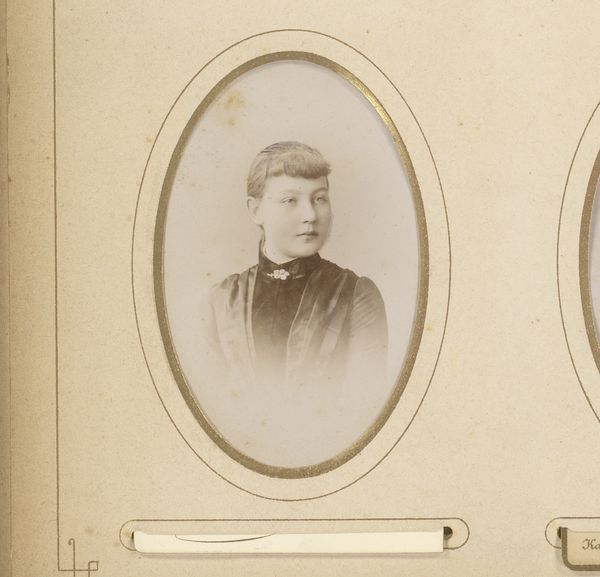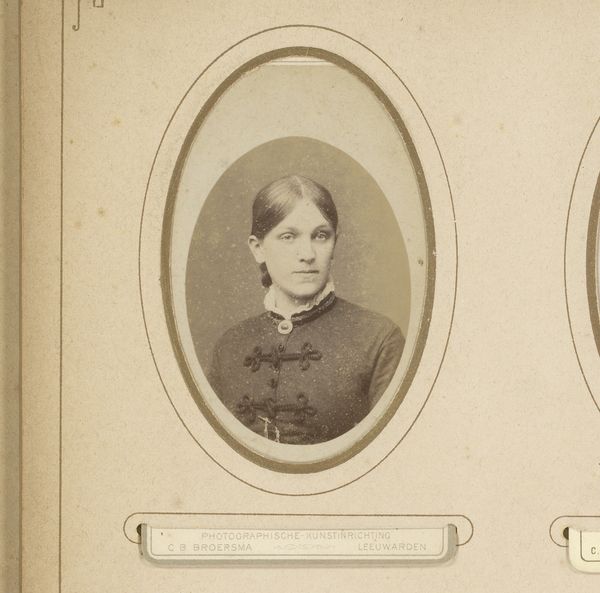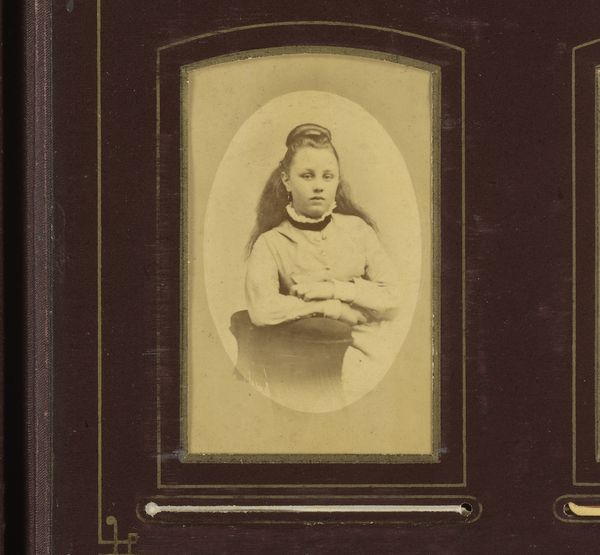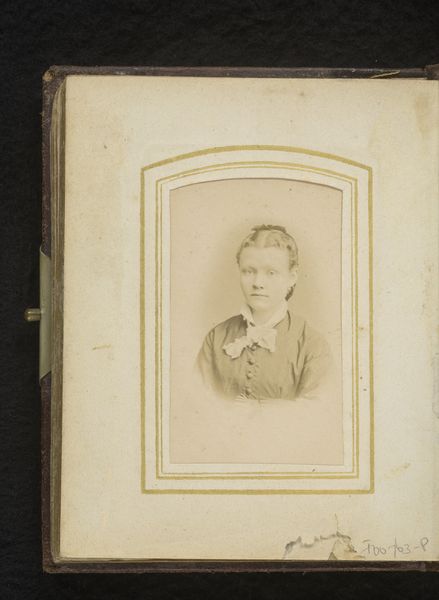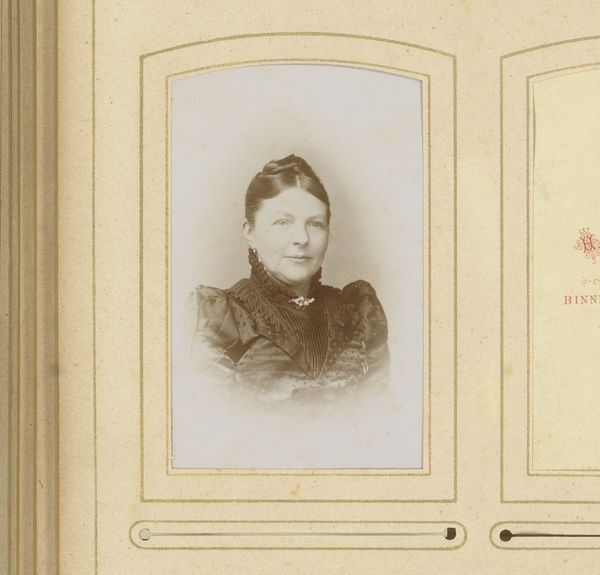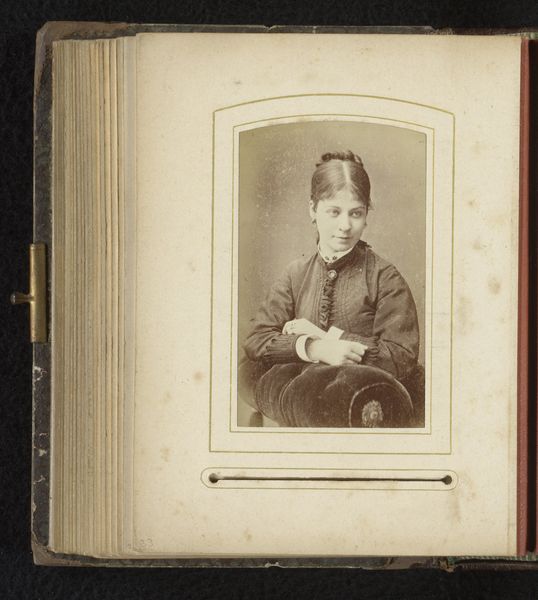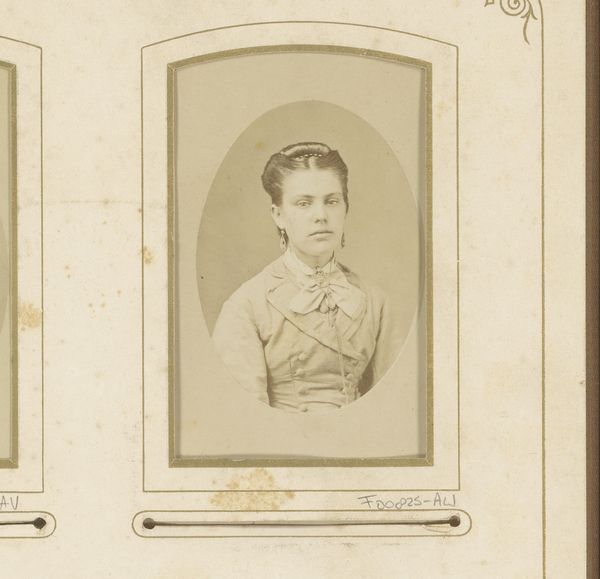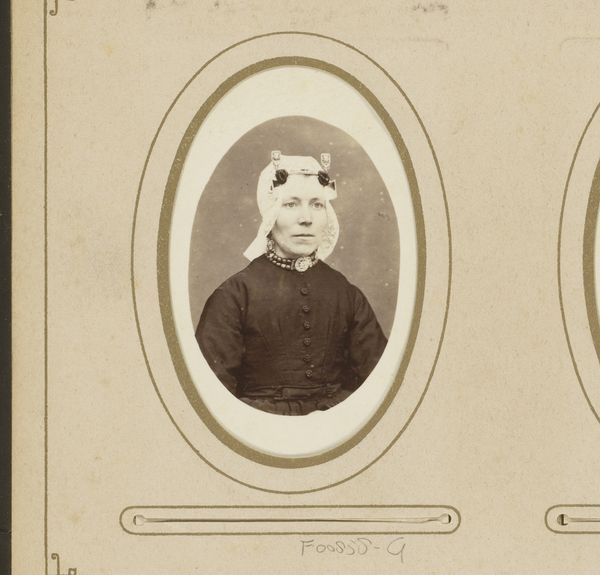
photography, gelatin-silver-print, albumen-print
#
portrait
#
aged paper
#
toned paper
#
photography
#
gelatin-silver-print
#
watercolor
#
albumen-print
Dimensions: height 80 mm, width 50 mm
Copyright: Rijks Museum: Open Domain
Hermanus Jodocus Weesing captured this portrait on film. Observe how the sitter's hands are clasped, almost hidden. Throughout history, hidden or bound hands can represent restraint, control, or even suppressed emotion. This motif appears across cultures, from ancient Roman sculptures symbolizing civic duty to Renaissance paintings where it might denote piety or modesty. The gesture's meaning has evolved. In some contexts, it speaks to inner strength or resilience, while in others, it hints at vulnerability or restriction. Consider how psychoanalytic theory might interpret this—a conscious attempt to conceal deeper feelings, a visual manifestation of the subconscious playing out in a single, telling gesture. The emotional power of such a pose lies in its ambiguity. It invites us to project our own interpretations, engaging with the image on a deeply personal level, drawn into a timeless dance of symbol and significance. The cyclical nature of symbols allows them to resurface, evolving and taking on new meanings, continually reflecting the complex tapestry of human experience.
Comments
No comments
Be the first to comment and join the conversation on the ultimate creative platform.
